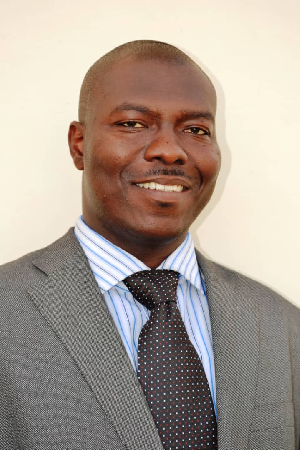- Home - News
- TWI News | TV
- Polls
- Year In Review
- News Archive
- Crime & Punishment
- Politics
- Regional
- Editorial
- Health
- Ghanaians Abroad
- Tabloid
- Africa
- Religion
- Election 2020
- Coronavirus
- News Videos | TV
- Photo Archives
- News Headlines
- Press Release
General News of Wednesday, 16 June 2010
Source: --
Delegation from KNUST Visits MCEER
to Discuss Collaboration in Earthquake Engineering
Devastating earthquakes around the world have demonstrated time and again the importance of seismic building codes and the use of proper materials to protect against damage. The problem is particularly acute in developing countries that may not have formal codes and standards or quality control procedures. Such is the case in Ghana, a West African nation that is home to the Kwame Nkrumah University of Science and Technology (KNUST).
A delegation from KNUST visited MCEER on June 2-3, 2010 to discuss areas of potential collaboration. KNUST has an interest in collaborating with MCEER in three areas: (1) the training of their faculty and staff at the University at Buffalo in earthquake engineering; (2) the exchange of graduate students, and (3) the training of engineers in Ghana on seismic resistant design. KNUST also envisions the establishment of an Earthquake Research Center in Ghana that will be a leader in Africa.
The collaboration was initiated and coordinated by University at Buffalo alumni Dr. Joseph Quarshie, a Project Engineer at Caltrans’ Fresno, California office, who received his Ph.D. in earthquake engineering under Professor Michael Constantinou in 1998. He is also a native of Ghana and obtained his undergraduate degree from the University of British Columbia.
In addition to Dr. Quarshie, the delegation included Prof. (Dr.) Kwasi Kwafo Adarkwa, Vice-chancellor, Prof. (Dr.) Samuel Innocent Kofi Ampadu, Head of the Department of Civil Engineering and Sectional Head of Geotechnical Engineering, and Dr. Mark Adom-Asamoah, Senior Lecturer and Sectional Head of Structural Engineering. Professors Andrei Reinhorn and Michael Constantinou hosted the group on behalf of MCEER.
A formal Memorandum of Understanding (MOU) was signed by Prof. Adarkwa of KNUST and Andre Filiatrault, MCEER Director, in September 2009. It allows for the establishment of collaboration, the initial exchange of ideas, sharing of materials and discussion towards the development of bi-national student/staff exchange visits to facilitate research and aid in the development of earthquake engineering as a discipline in Ghana.










